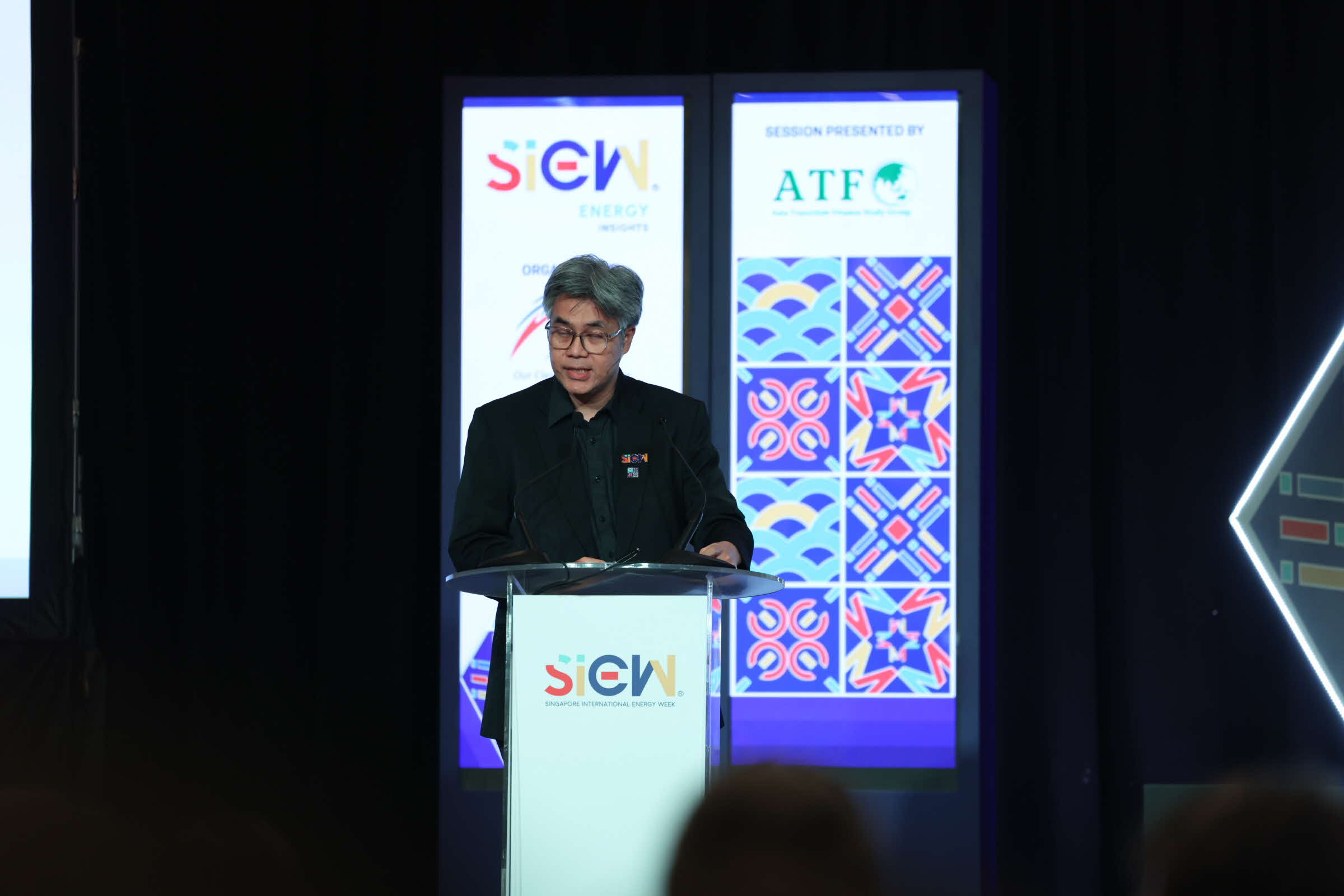By Rebecca Yap
Asia's energy transition is gathering pace. Funding it remains the missing link.

At SIEW Energy Insights, the session 'Advancing Transition Finance in Asia: Unlocking Investment through Solutions, Systems, and Carbon Markets', brought together Dr Nuki Agya Utama, Head of Asia Zero Emission Center and Energy Policy, Economic Research Institute for ASEAN and East Asia (ERIA) and Dr Megumi Muto, Deputy Chief Sustainability Officer, Senior Managing Executive Officer, Mizuho Financial Group, FI Lead for Asia Transition Finance Study Group (ATF SG) 2025. The discussion was moderated by Sunitha Chalam, Partner, Singapore Officer Head, Brunswick Group.
Together, the speakers unpacked how transition finance can bridge ambition and implementation across Asia. They also discussed how hard-to-abate sectors can attract credible, long-term investment.
Transition finance must move beyond "green"
Dr Nuki underscored that focusing solely on "green" projects is insufficient for ASEAN's decarbonisation goals. The region's transition must follow a "one goal, various pathways" approach. It involves scaling renewables, building enabling infrastructure such as grids and undersea interconnectors, and decarbonising hard-to-abate and high-emitting sectors.
This balance, he said, is vital to safeguard both energy security and emissions reduction as ASEAN nations move towards 2050 targets.
Bridging feasibility and bankability is Asia's central challenge
Both speakers noted that many projects remain technically feasible but do not reach financial close. Dr Muto added that the gap often lies in commercial and institutional readiness. Bridging it requires long-term regulatory clarity, and credible taxonomies. It also depends on early collaboration between governments, utilities, and financial institutions. Blended finance and risk-sharing mechanisms can then help make projects bankable.
Building the infrastructure for credible transition finance
Dr Muto stressed that Asia's transition finance ecosystem must rest on knowledge as much as capital. Through the ATF SG, institutions and regulators are developing shared frameworks and tools to define credible transition activities and assess bankable projects.
She highlighted that transition finance in Asia remains modest. Differing national standards and limited understanding of credible transition activities are key constraints. ATF SG's work includes updated guidelines, case studies, and feasibility assessments. These efforts aim to align international standards with Asia's diverse pathways. Together, they help enable practical decarbonisation at scale.
Carbon markets and global standards will be key enablers
Dr Nuki described carbon markets and transition finance as twin pillars for ASEAN. ERIA and the ASEAN Capital Markets Forum are developing guidance for a transparent and regionally aligned voluntary carbon market ecosystem.
Credible carbon credits, he noted, can improve the bankability of projects. They also deliver tangible environmental and community benefits. Aligning with global frameworks such as the International Capital Market Association (ICMA), Organisation for Economic Co-operation and Development (OECD), and the ASEAN Taxonomy helps strengthen credibility and build investor confidence.
Making transition finance actionable
Reflecting on ATF SG's progress since 2021, Dr Muto said the group has moved from identifying challenges to applying guidelines and use cases. The 2025 focus is on solutions and systems. This includes financing sustainable aviation fuels, power transmission and distribution, carbon credits, and applications in Islamic finance.
This marks a shift from discussion to deployment. She noted that convening power is needed to bring stakeholders together for implementation, with institutions such as ERIA and Asian Development Bank (ADB) playing a role.
Stay tuned as the conversation evolves throughout the day. Follow @SIEW_sg on Telegram and X (formerly Twitter) for the latest insights.